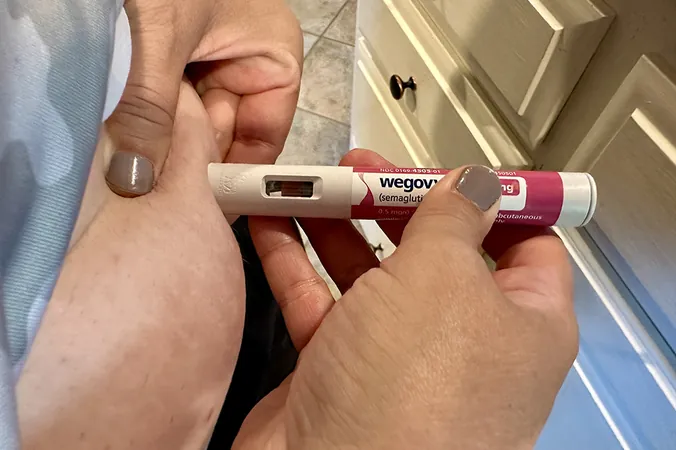
Pharmacists Urged to Report GLP-1 Side Effects as New Genetic Study Unfolds
2025-06-27
Author: Arjun
Pharmacists are being called upon to assist in a groundbreaking genetic research initiative focused on the side effects of GLP-1 receptor agonists. This appeal comes from a recent press release by the Medicines and Healthcare products Regulatory Agency (MHRA), revealing the crucial role healthcare professionals play in patient safety.
Although pharmacists are not explicitly named in the announcement, the MHRA urges all healthcare providers to file Yellow Card reports on behalf of patients who experience acute pancreatitis while using GLP-1 medications for weight loss or type 2 diabetes. These reports will aid in identifying individuals for a new phase of the Yellow Card Biobank study, conducted in partnership with Genomics England.
Upon submission of a report, the MHRA will reach out to patients, seeking their willingness to participate in the Biobank study. This will involve providing a saliva sample through a home testing kit to analyze genetic markers associated with adverse drug reactions (ADRs). The potential for minimizing medication side effects is significant, with Matt Brown, chief scientific officer of Genomics England, noting that many adverse reactions can be traced back to genetic factors.
Launched in May 2023, the Yellow Card Biobank has already recruited patients affected by severe reactions to direct oral anticoagulants (DOACs) and allopurinol to investigate genetic causes. The next phase will focus on GLP-1s, aiming to generate vital data for more personalized and safer medical treatment options.
According to Alison Cave, chief safety officer at the MHRA, nearly a third of medication side effects could potentially be avoided through genetic testing, saving the NHS over £2.2 billion annually in hospital costs from ADRs. She emphasized that insights from the Yellow Card Biobank will enable more accurate predictions of patients at risk of adverse reactions, facilitating the delivery of safer, tailored medications based on genetic profiles.
A representative from the National Pharmacy Association (NPA) noted that additional information about drug side effects often emerges during clinical use. They reassured that pharmacists take patient safety seriously, adhering to guidance from regulatory bodies when reporting any safety concerns.
Leyla Hannbeck, chief executive of the Independent Pharmacies Association (IPA), highlighted the importance of prescribing GLP-1 receptor agonists only by qualified medical professionals. She also advocates for community pharmacies to play a crucial role in the NHS rollout of weight-loss injections, suggesting that their involvement is essential to ensure safe prescriptions and potentially save lives.
With community pharmacists poised to support this initiative, they are eager for the government to empower them in delivering these services effectively, ensuring patient safety remains at the forefront.

 Brasil (PT)
Brasil (PT)
 Canada (EN)
Canada (EN)
 Chile (ES)
Chile (ES)
 Česko (CS)
Česko (CS)
 대한민국 (KO)
대한민국 (KO)
 España (ES)
España (ES)
 France (FR)
France (FR)
 Hong Kong (EN)
Hong Kong (EN)
 Italia (IT)
Italia (IT)
 日本 (JA)
日本 (JA)
 Magyarország (HU)
Magyarország (HU)
 Norge (NO)
Norge (NO)
 Polska (PL)
Polska (PL)
 Schweiz (DE)
Schweiz (DE)
 Singapore (EN)
Singapore (EN)
 Sverige (SV)
Sverige (SV)
 Suomi (FI)
Suomi (FI)
 Türkiye (TR)
Türkiye (TR)
 الإمارات العربية المتحدة (AR)
الإمارات العربية المتحدة (AR)